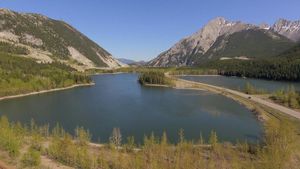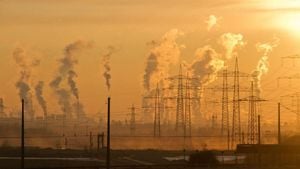Brazil is currently embroiled in turmoil as serious accusations emerge surrounding alleged coup attempts, with investigations intensifying against former President Jair Bolsonaro and his associates. These developments mark the latest chapter in Brazil's turbulent political saga, which has seen considerable ideological divisions and governmental upheaval.
It all began when Brazil's Federal Police executed arrests of several key figures associated with military and law enforcement. These individuals are suspected of conspiring to assassinate President Luiz
Ignácio Lula da Silva and Vice President Geraldo Alckmin, along with Supreme Court Justice Alexandre de Moraes. Such bold maneuvers point to the severity of atmosphere following the 2022 elections, where tensions were already running high due to Bolsonaro’s vocal claims of electoral fraud, leading his supporters to organize protests and demonstrations.
Two days after the shocking arrests, the police wrapped up their investigation, recommending indictments against 37 individuals involved in the attempted coup, which included Bolsonaro himself and several members of his former cabinet. The investigation findings have drawn alarm and curiosity, raising questions about the extent of the conspiracy and its backing.
Looking back, the fear surrounding Bolsonaro's administration has not emerged overnight. Only as far back as March 2021, The Brazilian Report speculated on Bolsonaro's aspirations, highlighting warnings from politicians and members of the judiciary about his potential plans to establish a “front” to maintain power even if he lost the election. Despite Lula’s return to power, Bolsonaro’s supporters have remained active, reflecting the deep political divisions still plaguing Brazil.
Critics argue this turmoil is not solely about political maneuvering; it’s deeply interconnected with broader social and economic struggles, which were highlighted during Lula's campaigns focusing on anti-hunger initiatives and economic recovery. The Brazilian populace's response has ranged from protest against what they see as authoritarian tactics to passionate rallies supporting Lula's return to leadership.
These events have broader ramifications, as Lula governs during precarious times. His administration has placed emphasis on addressing Brazil's socioeconomic issues head-on, but the shadows of coups, plots, and political machinations could hinder or downplay these promises. With the public's hunger for stability and effective governance at potentially unprecedented levels, the pressure mounts for Lula’s government to deliver results swiftly.
During this period of uncertainty, tensions simmer as Bolsonaro loyalists insist on maintaining ideological solidarity. This is showcased by gradual shifts among his supporters who are unwilling to relent, as events suggest they are doubling down on their affiliations with him, regardless of the serious allegations against him.
The allegations and subsequent investigations have sparked international curiosity, with observers worldwide keeping close tabs on how the situation evolves. Amid these concerns, Lula's government has seen both challenges and opportunities; the spotlight is on him to prove the efficacy of his leadership style and the capacity of his administration to mend partisan divides.
Yet, undercurrents of unrest continue to complicate matters. Reports indicate Bolsonaro’s camp has attempted to reshape the narrative, fanning the flames of discontent among his followers. A significant portion of his base continues to distrust the current administration, with narratives seeded around the alleged fraud of the 2022 election still pervasive. The legacies of the previous administration cast long shadows, challenging Lula's government at every turn.
Meanwhile, Brazil is preparing for heightened scrutiny from both domestic and international fronts as the investigation findings grip the nation. The ramifications of this coup attempt could resurrect discussions surrounding political accountability, democratic values, and the extent to which radical constituents are willing to go to assert their ideologies.
Unfolding events will continue to define Brazil’s political climate. For now, the question remains whether Lula's administration can overcome the institutional challenges it faces, including roadblocks created by the political machinations of Bolsonaro's supporters. Observers and analysts alike will undoubtedly be watching closely, as the situation evolves and impacts the nation's direction.
These challenges come at a time when Brazil has also been discussing significant international events, including taking on responsibilities concerning climate initiatives during the G20 Summit and other global platforms. Brazil's approach to tackling its internal struggles may also impact its international credibility and negotiating power.
With investigations proceeding and more revelations expected, the narrative is far from settled. The potential indictment of Bolsonaro and the chaos it may cause begs the question: how far will the former president’s influence stretch during these turbulent times?
Brazil stands at a crossroads: either it solidifies its democratic processes and sees justice for any wrongdoing, or it slips back toward authoritarianism and unrest, mirroring other challenges faced across Latin America. The resolution of this crisis will not only shape the political climate for the foreseeable future but bring back discussions about democracy's fragility.



